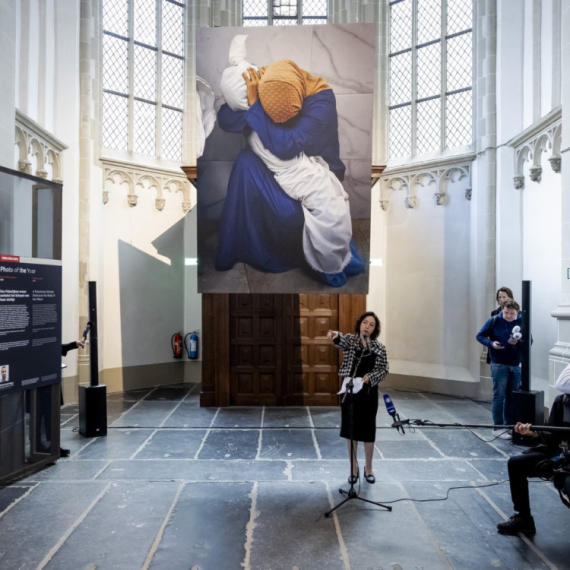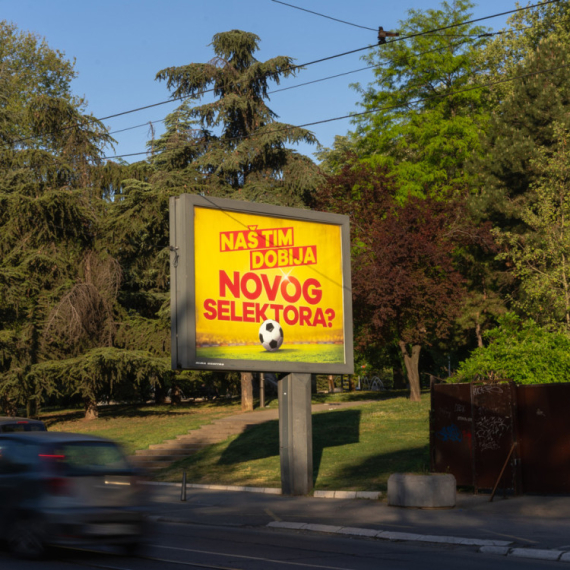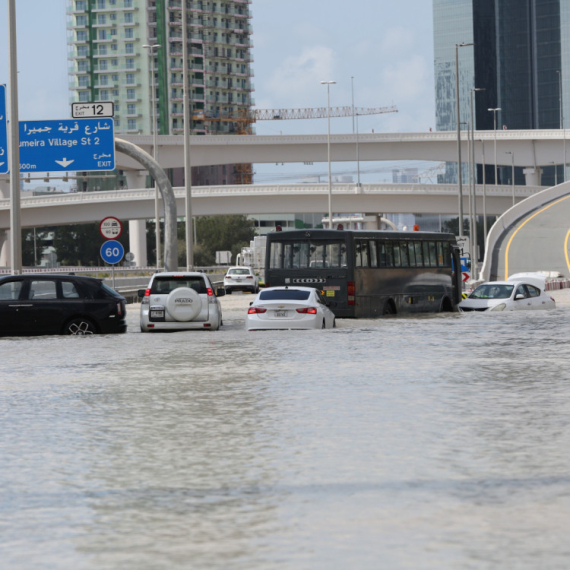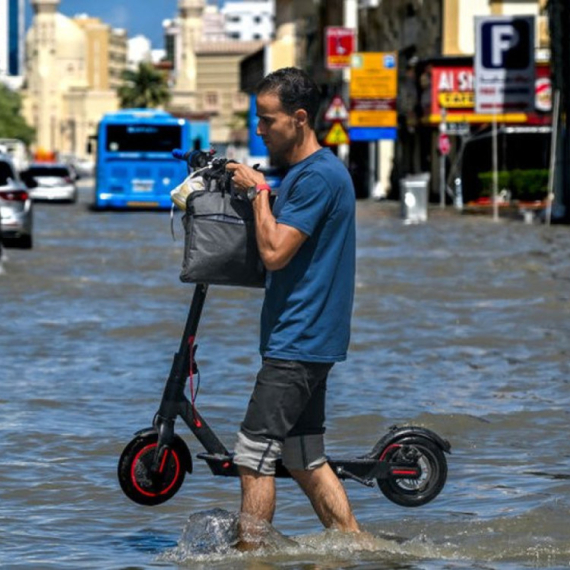Future government is "no threat to Vojvodina's autonomy"
PM-designate Ivica Dačić says that "an opinion is being artificially created that Vojvodina's autonomy is jeopardized by a government that is yet to be formed".
Monday, 16.07.2012.
16:08

SUBOTICA, BELGRADE PM-designate Ivica Dacic says that "an opinion is being artificially created that Vojvodina's autonomy is jeopardized by a government that is yet to be formed". Dacic was referring to the statement of League of Social Democrats of Vojvodina (LSV) party leader Nenad Canak that it was "necessary to internationalize the issue of Vojvodina's autonomy", after the decision of the Constitutional Court of Serbia ruling numerous jurisdictions given to the northern province to be unconstitutional. Future government is "no threat to Vojvodina's autonomy" Dacic recalled that judges of that court were elected by the outgoing government, and that the Socialist Party of Serbia voted in favor of the Vojvodina Statute. "After such a decision of the Constitutional Court, any attempt to speak about Vojvodina will be declared as calling for undermining of the constitutional order and betrayal," Canak told the Novi Sad-based daily Dnevnik. "I oppose the abuse of this issue," Dacic stated at a news conference in Subotica after his meeting on Monday with Alliance of Vojvodina Hungarians (SVM) leader Istvan Pastor, with whom he discussed issue related to the forming of Serbia's new government. Dacic said that pursuing that avenue "might be good for daily politics" - but that "elections are over and that, if there is any problem with Vojvodina's autonomy, it was created by the rule of the Democratic Party (DS)". The SPS party leader and deputy PM and interior minister in the outgoing government underlined that as prime minister designate, he was ready to cooperate with the Vojvodina provincial government as "democratic relations are in both governments' best interests, rather than fights that damage the whole country". Dacic added that it was "necessary to look for solutions rather than politicize such issues and added that he would not allow for disputable issues to be resolved in any other way but a democratic one". "I am extending the hand of cooperation, in order to make Serbia as stronger and as developed as possible, and for it to have a place in the European family of peoples," Dacic said. Istvan Pastor also addressed the issue to say that Canak's LSV party "could have done more for Vojvodina had its MPs voted differently when bills on the state budget and some others were voted on" - when, he said, the SVM stood in principled defense of the province's interests. "What does 'internationalization' mean, anyway? We are constantly doing that by protecting the interests of the province, also in our discussions with international institutions," Pastor was quoted as saying. Ivica Dacic (Tanjug, file) Constitutional Court ruling comes into force The Constitutional Court of Serbia (USS) ruling that some provisions in the law establishing jurisdictions of the Autonomous Province of Vojvodina are unconstitutional has come into effect, making said provisions invalid. The decision was published in the latest issue of the Official Gazette. On July 10, the Constitutional Court ruled that 22 provisions in the law were unconstitutional, including the ones declaring Novi Sad the capital of the province and allowing Vojvodina to establish an office in Brussels. The court explained the ruling saying that decentralization of power was one of the basic principles proclaimed by the Constitution, and that the writer of the Constitution is the only one authorized to determine the limits of decentralization. This means the law governing the scope of authority of the autonomous province, as a non-state level of government, must be in line with the boundaries laid out by the Constitution, it is said in the explanation. "The Constitution lists the areas in which the autonomous province can have its own authorities and states that the law should define which issues in these areas are of importance to the province," says the explanation. Starting from this concept, the Constitutional Court ruled unconstitutional those provisions in the law giving Vojvodina authority in areas not defined by the Constitution. These are: science and technological development, energy, local self-government and judicial authority in the Republic, as well as provisions that turn over authority to the province of whole areas instead of just those issues which are of importance to the province (water management, forestry, hunting, fishing, environmental protection). The Constitutional Court also noted that the citizens' right to provincial autonomy could not be considered an individual or collective human right, whose achieved level was guaranteed by the Constitution, rather it was a constitutional guarantee of decentralization as a governing principle. Beta Tanjug
Future government is "no threat to Vojvodina's autonomy"
Dačić recalled that judges of that court were elected by the outgoing government, and that the Socialist Party of Serbia voted in favor of the Vojvodina Statute."After such a decision of the Constitutional Court, any attempt to speak about Vojvodina will be declared as calling for undermining of the constitutional order and betrayal," Čanak told the Novi Sad-based daily Dnevnik.
"I oppose the abuse of this issue," Dačić stated at a news conference in Subotica after his meeting on Monday with Alliance of Vojvodina Hungarians (SVM) leader Istvan Pastor, with whom he discussed issue related to the forming of Serbia's new government.
Dačić said that pursuing that avenue "might be good for daily politics" - but that "elections are over and that, if there is any problem with Vojvodina's autonomy, it was created by the rule of the Democratic Party (DS)".
The SPS party leader and deputy PM and interior minister in the outgoing government underlined that as prime minister designate, he was ready to cooperate with the Vojvodina provincial government as "democratic relations are in both governments' best interests, rather than fights that damage the whole country".
Dačić added that it was "necessary to look for solutions rather than politicize such issues and added that he would not allow for disputable issues to be resolved in any other way but a democratic one".
"I am extending the hand of cooperation, in order to make Serbia as stronger and as developed as possible, and for it to have a place in the European family of peoples," Dačić said.
Istvan Pastor also addressed the issue to say that Čanak's LSV party "could have done more for Vojvodina had its MPs voted differently when bills on the state budget and some others were voted on" - when, he said, the SVM stood in principled defense of the province's interests.
"What does 'internationalization' mean, anyway? We are constantly doing that by protecting the interests of the province, also in our discussions with international institutions," Pastor was quoted as saying.
Constitutional Court ruling comes into force
The Constitutional Court of Serbia (USS) ruling that some provisions in the law establishing jurisdictions of the Autonomous Province of Vojvodina are unconstitutional has come into effect, making said provisions invalid.The decision was published in the latest issue of the Official Gazette.
On July 10, the Constitutional Court ruled that 22 provisions in the law were unconstitutional, including the ones declaring Novi Sad the capital of the province and allowing Vojvodina to establish an office in Brussels.
The court explained the ruling saying that decentralization of power was one of the basic principles proclaimed by the Constitution, and that the writer of the Constitution is the only one authorized to determine the limits of decentralization.
This means the law governing the scope of authority of the autonomous province, as a non-state level of government, must be in line with the boundaries laid out by the Constitution, it is said in the explanation.
"The Constitution lists the areas in which the autonomous province can have its own authorities and states that the law should define which issues in these areas are of importance to the province," says the explanation.
Starting from this concept, the Constitutional Court ruled unconstitutional those provisions in the law giving Vojvodina authority in areas not defined by the Constitution.
These are: science and technological development, energy, local self-government and judicial authority in the Republic, as well as provisions that turn over authority to the province of whole areas instead of just those issues which are of importance to the province (water management, forestry, hunting, fishing, environmental protection).
The Constitutional Court also noted that the citizens' right to provincial autonomy could not be considered an individual or collective human right, whose achieved level was guaranteed by the Constitution, rather it was a constitutional guarantee of decentralization as a governing principle.




























Komentari 14
Pogledaj komentare